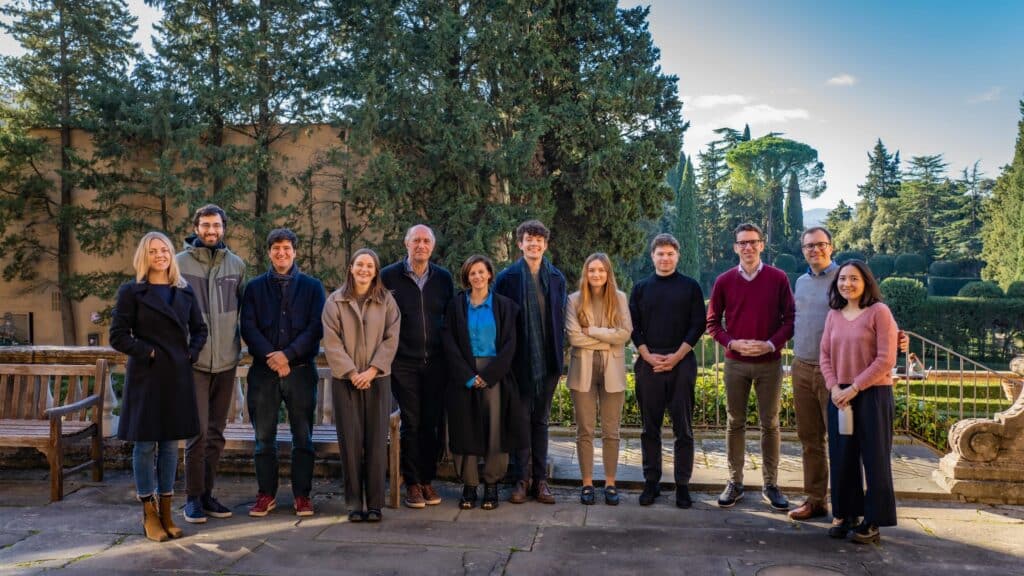A diversity of approaches to developing a decarbonised national hydrogen economy
This paper compares the national hydrogen strategies of Finland, Australia, and Norway with the German national hydrogen strategy. The analysis examines some of the different factors and variables that contribute to shaping the view of hydrogen and its usefulness in wider national objectives such as decarbonisation or economic growth.
To close out the 1st instalment of the Clean Molecules for the Energy Transition course, participants were given the opportunity to write a collaborative paper comparing and contrasting the hydrogen strategies of different countries. Our lead authors for this paper were Anca Costescu, Jānis Eisaks, Nora Hansen, Nuria Rodriguez-Gomez, Almudena Huerta Miranda, Baudouin De Hemptinne, and Eze D. Maduka. Read their paper here on the FSR Knowledge Hub and find out some more info about national hydrogen strategies and the Clean Molecules course below!
What are some of the different angles for developing a decarbonised hydrogen economy?
Hydrogen has received a renewed attention in recent years as a potentially key player in decarbonisation of the energy sector and wider economy. The EU in particular perceives hydrogen to be a key technology in the race to net-zero by 2050, as outlined in the EU Energy System Integration and Hydrogen Strategies. Virtually all the hydrogen produced today is of fossil origin and the vast majority is consumed in just a few sectors.
If hydrogen is to play a meaningful role in decarbonisation, the existing production must be cleaned up as well as new production and end use applications established, along with the supply chains to connect them. This will require, amongst other things, the development of new technologies, transportation lines, and industry standards. Countries and regions have the potential to play a variety of roles in the establishment and functioning of this sector as producers, consumers, innovators, etc. There are some key variables which can shape this outlook, such as renewable energy production potential, energy demand, scope for technological innovation, manufacturing capacity and competitiveness, geographical proximity to demand/ supply centres, energy security, and so on.
More than 30 countries have announced national hydrogen strategies or roadmaps in recent years as well as several companies, each charting a slightly different path towards success in a decarbonised hydrogen market based on their asset profile. Some focus on export of strictly renewable hydrogen, others plan to produce a wider range of decarbonised hydrogen. There are those who intend to export the technology and import the fuel, and others who look to leverage their transport infrastructure to profit from transit fees. The diversity of approaches can be complementary or, arguably, create the opportunity for miss alignment and interoperability issues in the future. It remains to be seen how things will emerge in the coming years.
Read the paper
“A diversity of approaches to developing a decarbonised national hydrogen economy”
The course opened up the opportunity for me to learn more about the topic of Clean Molecules: the broad scope of topics, the current relevance to the European discourse and, most importantly, the access to renowned personalities in the field were unique. After "Regulation of the Power Sector" and "Executive Course on Electricity Markets", this course was another great experience with the Florence School of Regulation for me! (Marc Bahlo, Participant 2021)
About Clean Molecules for the Energy Transition
The first edition of ‘Clean Molecules for the Energy Transition’ was held online over the course of two weeks. The first seven days were focussed on preparation, whereby participants went through the curated readings and audio-visual materials prepared by the course coordinators and instructors. The following week built on this established knowledge through lectures and debates, delivered by leading professionals from academia, policy making, and industry. The subjects of the sessions covered the definitions, technologies and processes associated with different decarbonised gases, as well as the policy and regulatory context in the EU.
Beyond the mandatory quizzes, participants who wanted to further apply what they had learned during the course were offered the possibility to participate in a ‘Mastery Challenge’. This additional component asked volunteers to assess the national hydrogen strategies of two countries and present the findings in a paper and a presentation. Three groups of six participants took up the challenge and presented their findings to a panel of experts and their fellow colleagues on the last day of the course, before combining their efforts into a final paper which is now available on the FSR Knowledge Hub.






